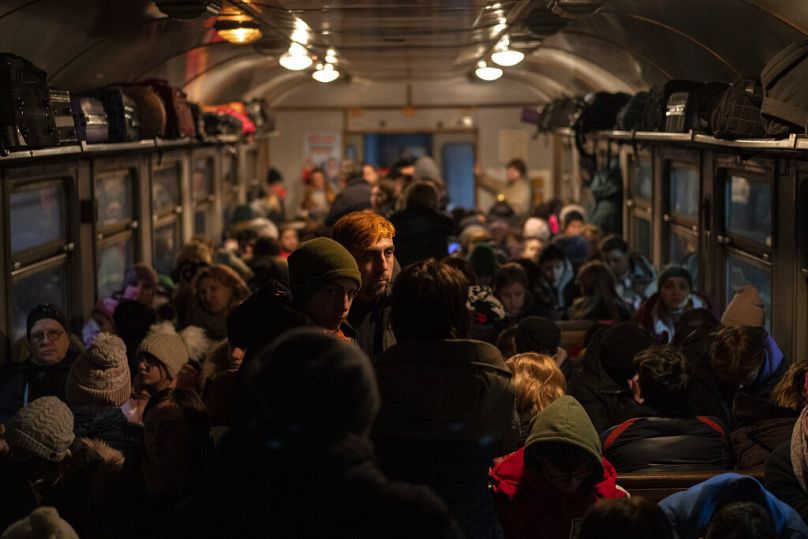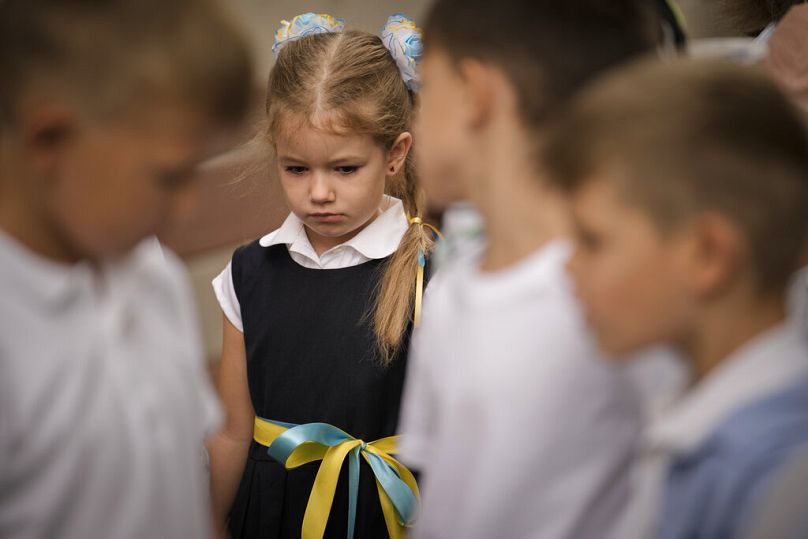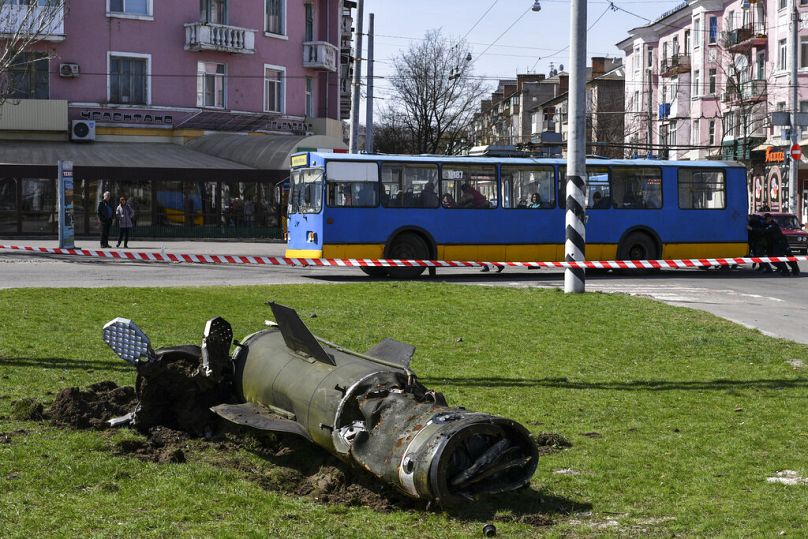Twelve months since the full-scale invasion, the humanitarian need inside Ukraine is greater than ever, and civilians continue to fall victim to the war, three leaders of faith-based advocacy organisations wrote.
Since Russia’s full-scale invasion of Ukraine began one year ago, 13.9 million people have been forced to flee their homes.
More than 17.6 million people inside Ukraine remain in need of humanitarian assistance.
Our faith-based humanitarian organisations were among the first responders in this crisis. Our staff and volunteers continue to provide life-saving support.
Yet, as the hostilities become protracted, the risks of donor and volunteer fatigue grow.
To ensure sustainable solidarity with displaced people, we call on the EU to boost support for the inclusion of refugees in Europe and to ensure quality support to local humanitarian actors inside Ukraine.
Volunteers and non-profits need the EU to continue its efforts
In February 2022, more than one million people fled Ukraine in a single week.
In those first days, while international agencies and donors were still formalising their response, churches, synagogues and other congregations leveraged their local knowledge and informal networks to assist Ukrainians arriving in Europe.
As organisations with EU-wide reach, we provided technical and financial support to grassroots actors who found themselves at the forefront of the emergency response.
We continue to help displaced people relocate to safety, or access schools, language classes, work, social services and housing.
Our staff and volunteers are committed to supporting refugees, regardless of their faith, background, or ethnicity.
Yet, volunteers and non-profits cannot single-handedly ensure Ukrainians’ social integration in the face of EU-wide housing and labour market challenges.
Both EU and member state efforts are needed to ensure refugee access to accommodation, work and mental health support.
The EU’s 10-Point Plan to assist Ukrainians laid out a clear ambition to support “continuity of care and suitable accommodation.”
This could take the form of more directly-accessible funds for local actors, structured support for private hosts, or coordination at Member State level on long-term housing solutions.
Community-led welcome is a powerful means of providing refugees with dignity and self-reliance, but only if it can be made sustainable by the backing of national and European actors.
Civilians remain in peril — and not just from bullets and rockets
Twelve months since the full-scale invasion, the humanitarian need inside Ukraine is greater than ever.
Civilians continue to fall victim to the war, despite repeated calls for international humanitarian law to be respected.
Women and girls are exposed to gender-based violence. Children and adults alike face long-term physical and psychological trauma.
Some 15 million Ukrainian families report deteriorating mental health, and one in five people are expected to develop depression, anxiety, post-traumatic stress disorder, bipolar disorder or schizophrenia.
Mental health and psychosocial support are critical, as is cash assistance to ensure the survival of displaced families.
Without diverting humanitarian resources from other crisis countries, Europe must address these needs.
This requires accessible, quality funding for the local humanitarian actors that have borne the brunt of the crisis response.
Helping Ukrainians continues to be the top priority
Too often, the perspectives and needs of Ukrainian civil society have been sidelined in humanitarian decision-making fora.
Meaningful participation of affected communities will ensure equitable partnerships between grassroots, national and international civil society.
Further, local and national groups are well-placed to ensure that the needs of the most vulnerable groups remaining inside Ukraine — including the elderly, people with disabilities, and internally displaced people — are addressed.
Many of these populations are located in parts of Ukraine that international actors are unable to reach, highlighting the urgent need for productive negotiations on humanitarian access.
Communities of all faiths — both at the grassroots and through the EU-wide NGOs we represent — have played a pivotal role in protecting and welcoming people affected by the war in Ukraine.
Now, with almost five million people registered for temporary protection, the EU and its member states must step up to ensure the societal inclusion of displaced Ukrainians, particularly by responding to housing challenges.
Inside Ukraine, European aid efforts must prioritise the most vulnerable, hardest-to-reach groups.
Ilan Cohn, Director of HIAS Europe, the Jewish refugee nonprofit; Ruth Faber, CEO of EU-CORD, the Christian humanitarian relief nonprofit; and João Martins, Director of ADRA Europe, the relief and development arm of the Seventh-day Adventist Church, are leaders representing faith-based advocacy organisations.
At Euronews, we believe all views matter. Contact us at view@euronews.com to send pitches or submissions and be part of the conversation.














